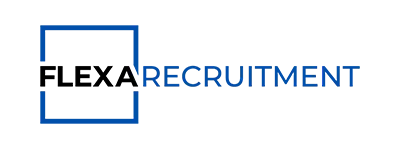
The landscape of general practice is undergoing a transformative shift, driven by advancements in technology, evolving patient expectations, and systemic changes in healthcare delivery. For general practitioners (GPs) in New Zealand, staying ahead of these trends is crucial for providing high-quality care and adapting to the future of medicine. In this blog, we explore the key trends and innovations shaping the role of GPs and what they mean for the future of general practice.
1. Embracing Telemedicine
Telemedicine has revolutionised the way healthcare is delivered, offering both patients and GPs increased flexibility and accessibility. With advancements in video conferencing and digital health platforms, GPs can now conduct consultations remotely, improving access to care for patients in rural and remote areas.
Key Benefits:
- Increased Access: Patients can receive care without the need for travel, making healthcare more accessible.
- Efficiency: Streamlines the consultation process, allowing for quicker follow-ups and management of chronic conditions.
- Patient Convenience: Offers flexibility in scheduling and reduces waiting times for appointments.
2. Integration of Artificial Intelligence (AI)
Artificial intelligence is making significant inroads into general practice, with applications ranging from diagnostic tools to administrative support. AI-powered systems can assist GPs in interpreting medical images, predicting patient outcomes, and automating routine tasks.
Key Benefits:
- Enhanced Diagnostics: AI can analyse medical data and provide insights to aid in accurate diagnosis.
- Efficiency Gains: Reduces the time spent on administrative tasks, allowing GPs to focus more on patient care.
- Predictive Analytics: Helps in identifying at-risk patients and managing preventive care more effectively.
3. Focus on Preventive and Personalised Medicine
The shift towards preventive and personalised medicine is reshaping general practice. GPs are increasingly emphasising early intervention and tailored treatment plans based on individual patient data.
Key Benefits:
- Improved Patient Outcomes: Personalised care plans lead to better management of chronic conditions and overall health improvement.
- Patient Engagement: Encourages proactive participation in health management and lifestyle changes.
- Resource Efficiency: Reduces the need for more intensive treatments by addressing issues early.
4. Enhanced Use of Electronic Health Records (EHRs)
Electronic Health Records (EHRs) have become a cornerstone of modern healthcare, offering a comprehensive view of patient history and facilitating better coordination of care.
Key Benefits:
- Comprehensive Records: Provides GPs with access to complete patient information, improving the quality of care.
- Streamlined Communication: Enhances collaboration with other healthcare providers and reduces the risk of information loss.
- Data-Driven Decisions: Facilitates evidence-based decision-making and clinical research.
5. Patient-Centred Care and Collaboration
The future of general practice is increasingly focused on patient-centred care, where the patient’s needs and preferences are at the heart of decision-making. GPs are also collaborating more closely with multidisciplinary teams to provide holistic care.
Key Benefits:
- Enhanced Patient Experience: Builds stronger relationships between GPs and patients, leading to better adherence to treatment plans.
- Holistic Care: Addresses various aspects of a patient’s health through collaboration with specialists and other healthcare providers.
- Empowerment: Encourages patients to take an active role in their health and well-being.
6. Innovations in Health Technology
Health technology continues to advance, with innovations such as wearable devices, mobile health apps, and remote monitoring tools becoming increasingly prevalent. These technologies offer GPs new ways to track and manage patient health outside the traditional clinic setting.
Key Benefits:
- Real-Time Monitoring: Enables continuous monitoring of patient health metrics, leading to timely interventions.
- Patient Engagement: Provides patients with tools to actively manage their health and wellness.
- Data Collection: Offers valuable data that can enhance clinical decision-making and research.
The future of general practice is being shaped by a range of exciting trends and innovations, from telemedicine and AI to preventive care and advanced health technologies. For GPs in New Zealand, staying abreast of these developments is essential for delivering high-quality care and remaining at the forefront of the profession. Embracing these changes will not only enhance patient outcomes but also streamline practices and improve overall healthcare delivery.
If you’re a GP or know a GP looking for new opportunities, get in touch with Flexa Recruitment today!


